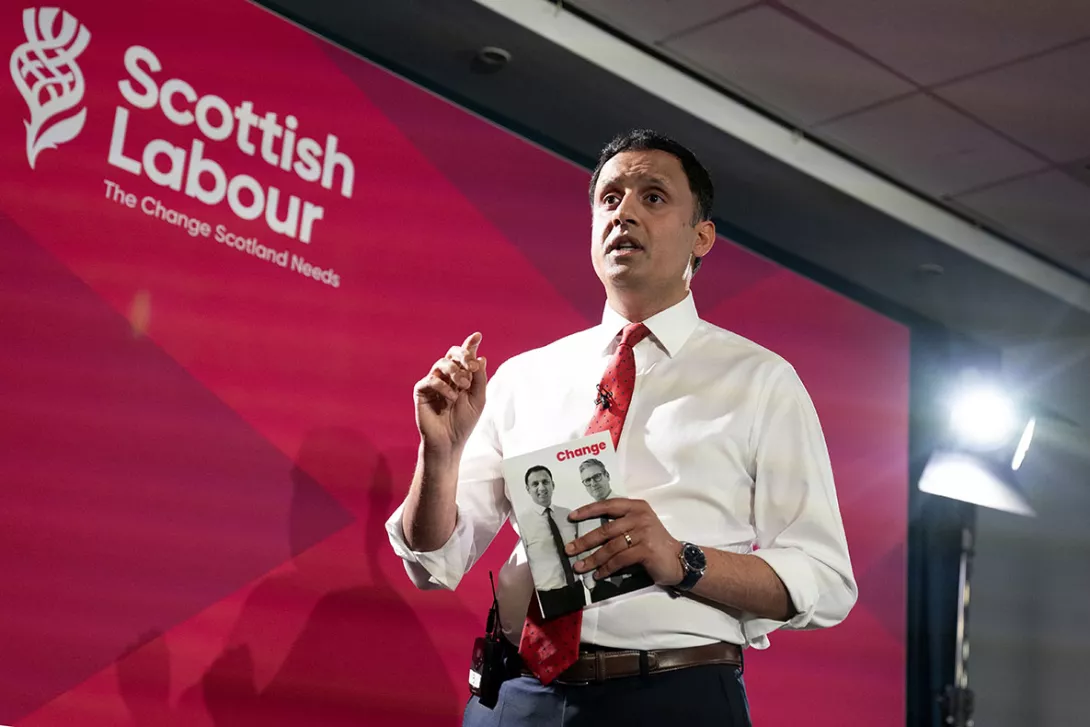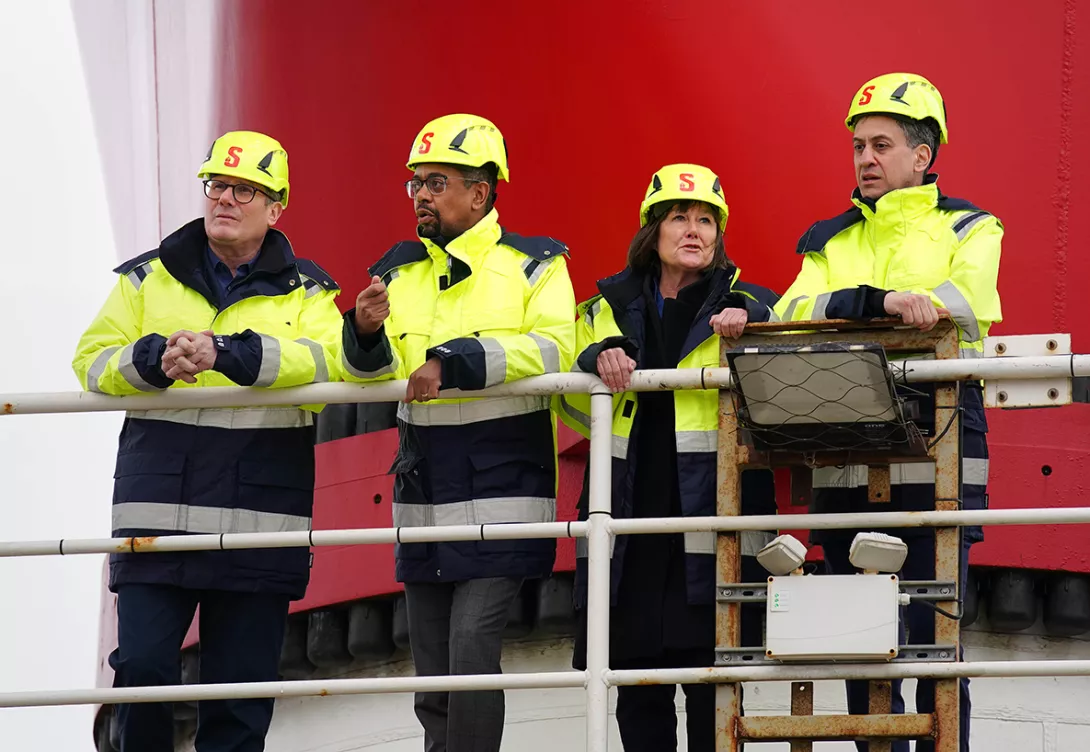VIJAY PRASHAD examines why in 2018 Washington started to take an increasingly belligerent stance towards ‘near peer rivals’ – Russa and China – with far-reaching geopolitical effects
What is GB Energy anyway?
This new plan may be one of Starmer’s avowed priorities in government, but he and Scottish Labour leader Anas Sarwar have given conflicting accounts of how it will actually work. COLL McCAIL reports

LABOUR’S 136-page general election manifesto contains almost as many pictures of Keir Starmer as it does concrete policy commitments.
There are 191 mentions of the word “change,” plenty of platitudes and very few details. The document contains lots of colour but, appropriately, the section outlining “Labour’s fiscal plan” and shackling Keir Starmer to the prevailing economic orthodoxy is entirely grey.
The message is clear: Labour will be sensible managers and responsible custodians of the status quo. Adorning this otherwise bland electoral offer are an array of intentionally vague promises to which Labour MPs can point when asked the inevitable question, “what will actually change?”
More from this author

COLL MCCAIL reveals how party members rebelled against the current leadership’s attempts to block democratic debate on opposing SNP budget cuts at their Greenock conference

The British government actively supports Israel’s escalating violence across the Middle East through arms sales, military assistance, and diplomatic cover, writes COLL McCAIL

The independence referendum’s youthful energy has dissipated, leaving Holyrood disconnected from voters as the constitutional question fades and Labour gains ground from a stagnant SNP, writes COLL MCCAIL

COLL McCAIL sees a parallel between Sunak's authoritarian crackdown on dissent and Thatcher’s war on the miners 40 years ago













